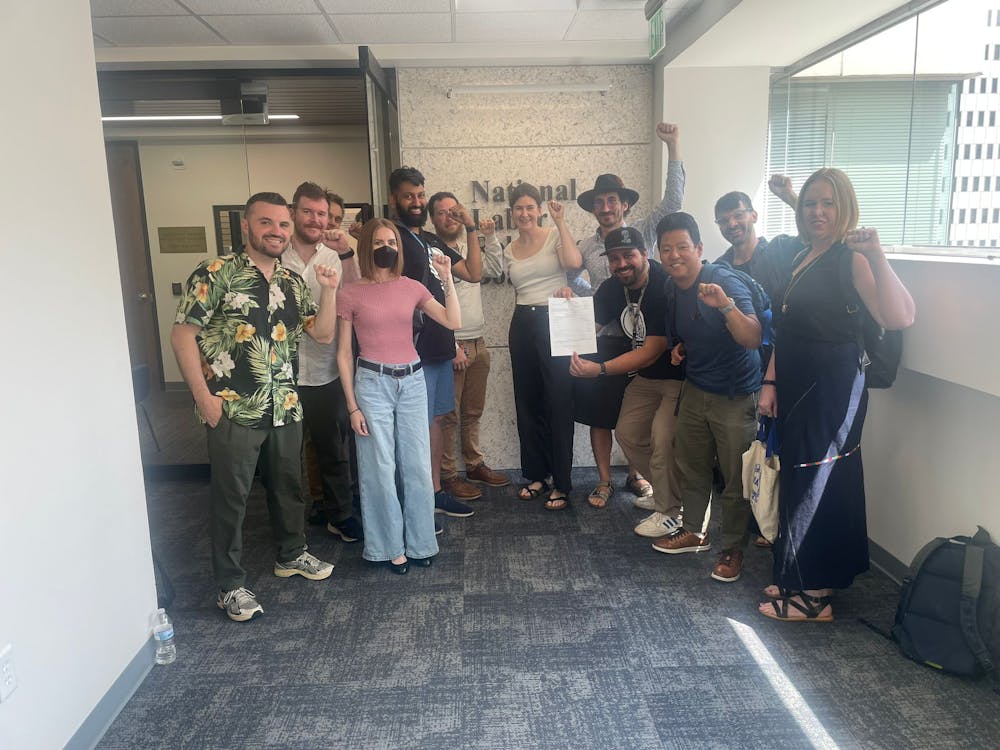To raise mental health awareness and advocacy, three students shared their personal experiences and answered questions from the audience as part of a panel hosted by Active Minds on Nov. 3. The panelists requested to remain anonymous because the topics discussed were sensitive.
A common theme from all the students’ experiences was that irrational thoughts and behaviors seem reasonable and completely rational to them.
“From age twelve until seventeen, I always had these suicidal, ‘what can I do to hurt myself?’ type of thoughts, but at the time I thought that they were completely normal,” one student said. “But as I grew up, I came to realize that this wasn’t something that everyone had.”
Another student spoke about how the symptoms of her OCD are perceived to be irrational by others but actually seem logical to her in the moment.
“There is a reason; it’s just not a rational one,” another panelist said. “But to the person who has the illness it seems completely, totally understandable. You just have to do it, if you want to stay safe or continue living a happy life… It’s not just some weird habit you have, it’s grounded in this anxiety that you have in your head.”
All three panelists emphasized that while therapy and medicine are inconvenient, they usually help.
“It’s very difficult and very stressful, because you have to intentionally call these bad thoughts to mind,” one panelist said. “The medicine and therapy have to go hand-in-hand, because neither one is enough usually on its own.”
Another student specifically spoke about the benefit she found in seeking help.
“Going to the psychiatrist for the first time was so helpful,” the student said. “It was really nice to have a tangible thing to put onto what I was feeling.”
An important aspect that they mentioned was that their mental illnesses are part of their identities. They spoke about how learning to accept that half the battle is realizing what the problem is, and the other half is coping with it.
“My OCD is a part of me, and my mom doesn’t like me saying this, because she likes to think it’s a separate thing, it’s an illness and you have to fight it the whole time, but I think at a certain point I just have to accept that I have to accept it and learn to live with it” one panelist said.
While the students identified their mental illnesses as an essential part of who they are, they made sure that their personalities are independent of their mental illness.
“If it does come up with my friends, then I will tell them,” another panelist said. “Sometimes when they find out, they are very surprised, they say that I seem ‘so chill’ on the outside that they would never expect it from me. But my personality is completely independent of my mental health.”
Active Minds held this panel as part of their mission to reduce the stigma of mental illness at Hopkins.
“There’s no reason to be ashamed,” one panelist said. “Even if you feel like you’re alone, there’s a whole community willing to accept you, even if they don’t understand personally what you’re going through.”
John Hughes, president of Active Minds, spoke about the importance of mental health awareness, especially on a college campus such as Hopkins.
“These events give people some practical knowledge of how they can be better allies and supporters for people in their lives who are struggling with some specific mental illness or may just be having some troubles in their life that could benefit from a supportive friend that they can reach out to,” Hughes said.
Felicia Petterway, a freshman and a member of Active Minds, came to the panel because she wanted to learn about mental health and ways she can help educate others.
“It's important that we talk about ‘taboo’ topics like these, because the only way we can start to solve the issue and break the stigma is by having our voices be heard,” Petterway said.
Sophomore Alex Kozitzky regularly attends Active Minds meetings and wanted to hear the stories of people who are dealing with mental health conditions similar to his own.
“People tend to hide their true emotions here and focus on academics,” Kozitzky said. “I think the best way to learn about mental illness is to really hear about it from someone who suffers from it firsthand, because mental illness is more common than one would think and that people can suffer from them in various degrees, all of which tend to be rather invisible.”




